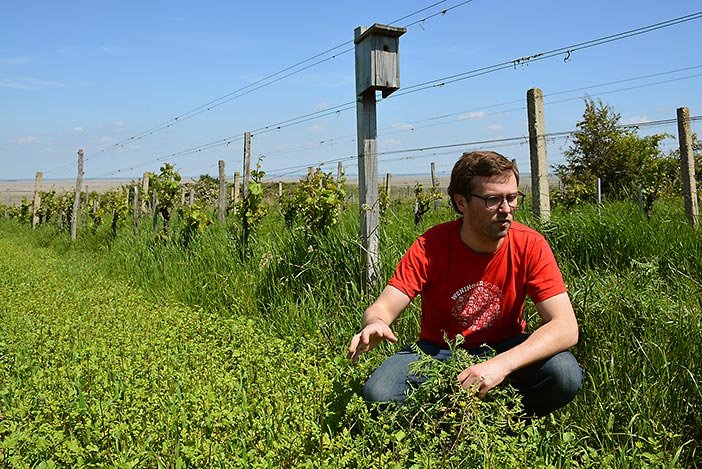The family-run Weingut Weninger grows biodynamically on more than 50 hectares in two countries, Burgenland in Austria and Sopron in Hungary. The Weninger’s passion for organic farming and soil characteristics has resulted in several quality awards for their wines.
History of Balf estate
Balf is a sleepy little Hungarian town, 15km south of Sopron and the same distance east of Weninger’s Austrian Horitschon estate. Balf’s winemaking history goes back 400 years. The communist era has also left its mark on its wines and the town itself. Some of the houses have been renovated since the communist days, but the Weninger winery, completed in 2006, looks as if it has been dropped in from another world. The ultra-modern, minimalist glass-and-concrete cube reflects the Weningers’ approach to winemaking; you can look back as far as you can see – or into the future. It is your personal choice.

Weninger started acquiring land in Balf in 1997. In Balf, they were particularly interested in the rare slate soil, which, combined with the gneiss content, gives the wines their characteristic mineral tone. The year 2000 was a turning point, when the Weninger estate began to look ahead in its production methods. In 2004 they were certified organic and in 2006 the wines were also considered fully biodynamically grown.
It was no small feat, as under communism the wine was intensively produced and the soil was drying out – becoming depleted. Weninger worked for several years as pioneers of biodynamic viticulture to ensure that the soil was once again vibrant. Soil for top quality wines which have begun to win many international accolades.
Today, 25 hectares of mainly red varieties are grown on the Balf farm. Ten hectares are 40-year-old Kékfrankos (Blaufränkisch in German). The rest are new plantings of Syrah, Merlot, Pinot Noir, Cabernet Franc. There is also a trial of white White Burgundy, Pinot Blanc.
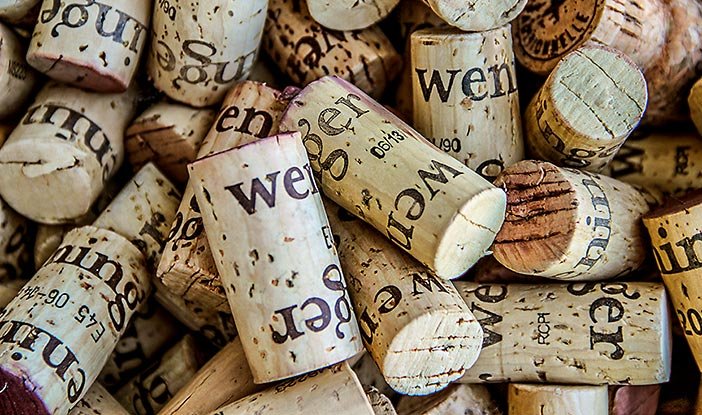
Biodynamic farming with wine – or tomatoes
The Pannonian climate is warm but Franz Reinhard Weninger is not worried about it.
– Biodynamic farming offers ways to reduce the impact of global warming, he says with burning enthusiasm. “Different plants can be used to modify the soil to cool the vines.
During the couple of hours I became convinced myself that biodynamic farming offers the means for everything in agriculture. Franz gave an everyday example:
– Try a tomato from the market? It doesn’t taste like anything compared to one you’ve carefully grown yourself! This is absolutely true, I thought, but I didn’t have time to say anything else as he was already blasting on.
– All plants must follow a natural seasonal developmental cycle so that sugar content and physiological maturity are reached simultaneously. This is what we are trying to achieve in viticulture. The plants will green and flower until the summer solstice, after which they must be able to concentrate fully on producing fruit. This natural cycle is easily disrupted in high-volume production.
Green vineyards

We have to admit that at Weninger they live as they teach. We drove to the vineyards, a stone’s throw away and I’ve never seen such lush vegetation between the rows of vines as here. The rows even had mustard flowers growing to their belts and some kind of sorghum. Plant roots have a carefully considered role in shaping the soil. Franz dug up the soil to show what it was all about.
– When we talk about the physiological properties of soil it is about four things; infiltration, drainage, the depth of the different layers and the texture that binds the mineralising rocks.
Franz is in his element and continues;
– It’s often said that minerality only comes from big rocks but that’s not true. We use our own compost because it gives nutrients to the wine, it binds water and also because it also binds small stones from which minerals are released into the wine.
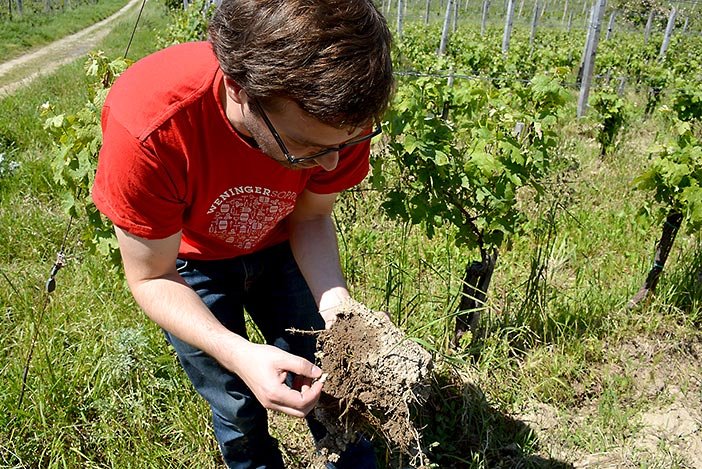
– In addition to compost, we provide energy for the wines with an herbal tea made from nettles, field maple and chamomile. It’s so good we drink it ourselves,” Franz laughs!
There were also bird boxes in the noses of the support poles in the rows of vines. I asked what the birds do in biodynamic farming?
– We don’t know exactly, but we installed a couple of hundred birdhouses because birds are part of nature.
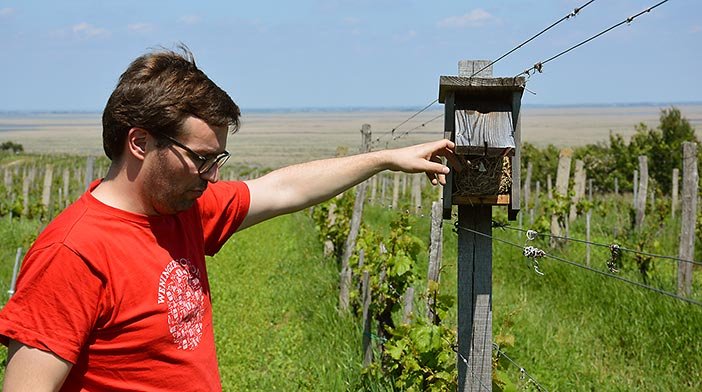
Something old and something new in the basement
Weninger relies on old knowledge combined with modern understanding to work in the cellar. According to him, grapes from different soils should be given their own ripening environment.
Weninger makes most of his wines in large 4000 litre oak barrels, using only natural yeasts from his own vineyard. From there, the different wines are matured either in large oak barrels or in smaller 225 litre barriques, some new, some old. Malolactic fermentation takes place in the barrels.
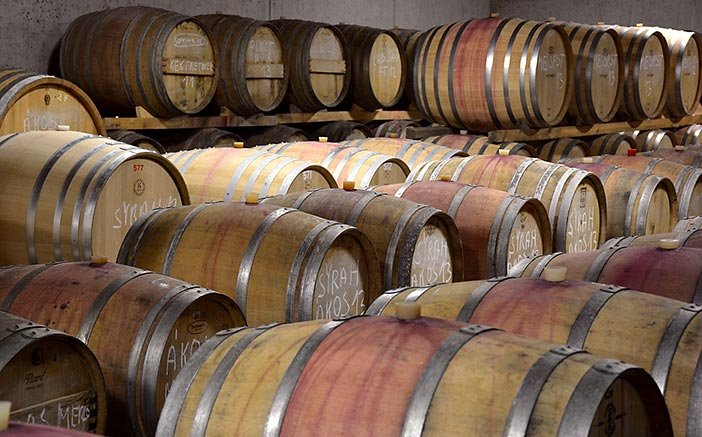
Franz offered us barrel tastings of last year’s Blaufränkisch harvest. It was like a slightly sharpened raspberry juice. Blaufränkisch, he says, is an interesting variety; it can be turned in two directions in the cellar, either into a delicately raspberry Pinot Noir style, or a more robust and spicy Syrah way.
Weninger wine tasting
Weninger wines are fresh and intensive in style. The acidity is balanced by the Pannonian warm climate. The soil and its minerals are often present.
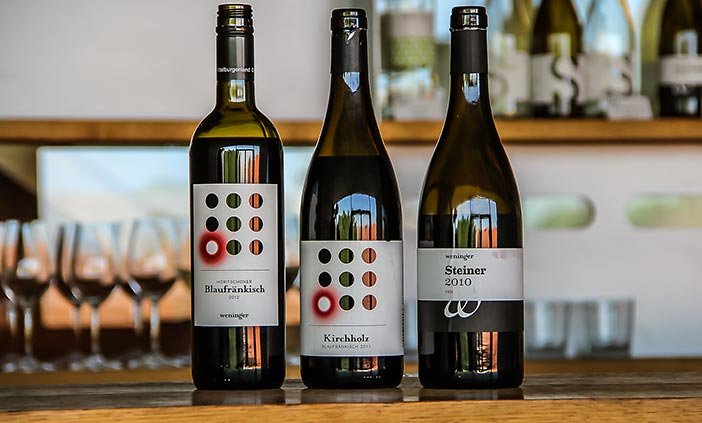
Horitschoner Blaufränkisch 2012, Mittelburgenland DAC
A youthful forest berry nose with blueberry, a hint of flint smoke and spices. A medium-bodied wine with good intensity. Long and elegant aftertaste.
Kirchholz 2011
A developed nose with spices and forest berries. Versatile and complex.
The palate is long and softly tannic. Well balanced wine.
Steiner 2011, Balf
Planted in 1964, the vines give off a luscious plummy, smoky earthy aroma. There’s an oaky toastiness too.
Surprisingly fresh aroma, there are also snappy mouth-drying tannins at the end.
The day was overwhelmingly interesting. As we shook hands in the courtyard and looked once again the architectural cube set up in the middle of old Hungary, I asked Franz how you were received here in Balf with your biodynamic farming methods and herbal tee?
– You have to be careful what you say here, people can easily think you’re crazy!
Teksti: Janne Suomi
Kuvat: Janne Suomi ja Sami Issakainen
www.weninger.com
This post is also available in:

